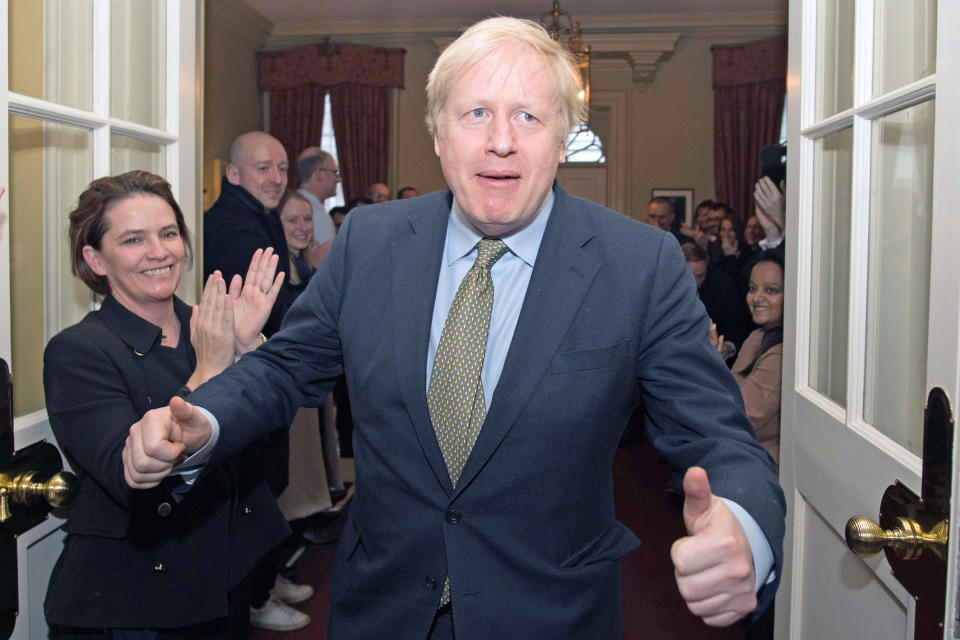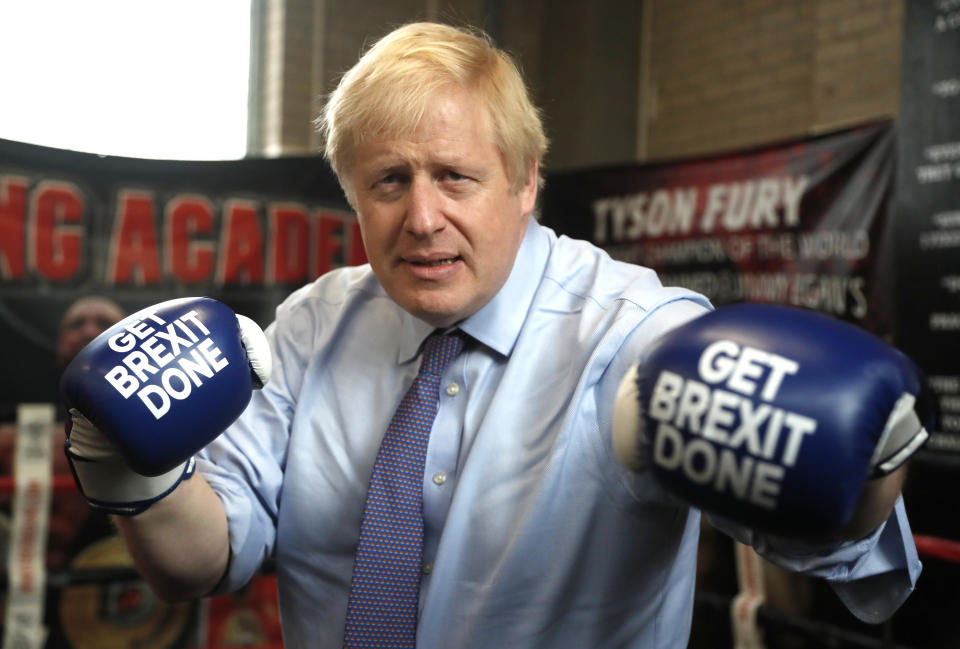What happens next for Brexit after Boris Johnson's crushing election victory?

Boris Johnson’s stunning general election victory means the UK’s departure from the European Union is all but guaranteed.
A large new intake of Conservative MPs elected under Mr Johnson’s ‘Get Brexit Done’ manifesto means the Prime Minister finally has the numbers to push his deal through the Commons, having been plagued by the 2017 hung parliament in the first few months of his premiership.
However, an exhaustive process still needs to be followed before Brexit finally happens, and the government needs to move quickly if it is to meet the current January 31 deadline set by the EU.
Here is how it’s likely to pan out.
December 17
Parliament returns, with Lindsay Hoyle set to be re-elected as speaker. Meanwhile, MPs will be sworn in across the next two days. Some 365 Conservative MPs will be sworn in, compared to just 203 from Labour, demonstrating Mr Johnson’s mandate to deliver Brexit.
December 19
The State Opening of Parliament and Queen’s Speech. This sets out the government’s legislative agenda, of which Mr Johnson’s Withdrawal Agreement Bill will form a central part.
There is expected to be much less of the pomp and ceremony seen in the previous state opening in October.
December 20 through to January
The Conservatives, mindful of the ‘Get Brexit Done’ narrative that gave Mr Johnson such a healthy majority on Thursday, have pledged to re-introduce the Withdrawal Agreement Bill before Christmas.

This means it is likely to go before the Commons for its second reading on Friday 20 December, the earliest possible date. However, this has yet to be confirmed.
If and when it passes, the bill still has to go through a committee stage, report stage and third reading on further dates to be confirmed, probably after Christmas.
However, it is likely to sail through without difficulty because of the Tory majority in the Commons, meaning other parties don’t have the numbers to outvote the government.
The bill then has to pass through the Lords, although they are effectively powerless to reject it.
Finally, there will be consideration of amendments to the bill. Again, this is not expected to be a problem because of Mr Johnson’s majority.
Once the Commons and Lords agrees on a final version, it will receive Royal Assent and become law.
That is not the end, however. The Withdrawal Agreement must still be ratified by the European Parliament. But if all goes well…
January 31
…Brexit “gets done” and the UK leaves the EU.
February 1 through to December 31
It’s far from over, though.
At this point, a fresh round of negotiations are set to begin on a trade deal and future relationship with the EU.
For this, there will be a new deadline of December 31 - the end of the “transition period” in which the UK still operates under EU rules - for an agreement to be reached.
Just like talks for the Brexit deal, the future relationship negotiations are likely to be tricky.
Reacting to Mr Johnson’s election, new European Commission President Ursula von der Leyen warned: “The time frame ahead of us is very challenging. We will have to work as soon as possible.”
And French President Emmanuel Macron told Mr Johnson he must be “loyal” to “European standards” if the UK is to achieve an “ambitious” deal.
— Read more from Yahoo News UK —
Boris Johnson's huge victory will reshape US-UK relations and Britain's DNA
Labour looks like it's about to tear itself in two
The night Jeremy Corbyn's socialist dream died
Mr Johnson may appoint a cabinet minister, possibly current Brexit Secretary Stephen Barclay, to oversee them.
If an agreement cannot be reached, the UK will “crash out” and automatically be subject to World Trade Organisation rules.

